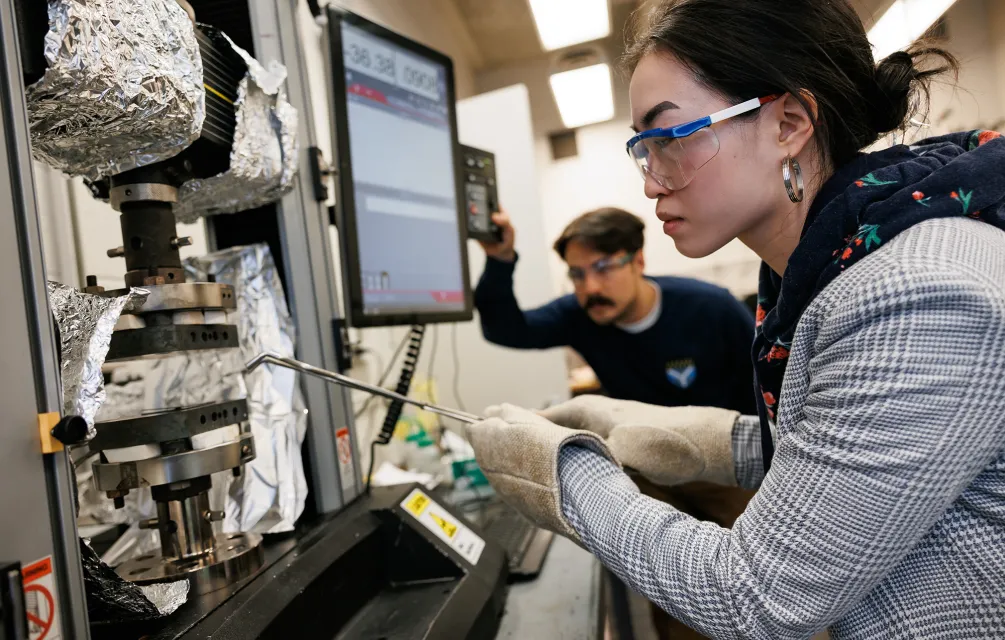Graduate Study
Mechanical Engineering

Prospective Students
Yale's Mechanical Engineering graduate students are at the cutting edge of innovations that bridge fundamental physics with transformative engineering solutions. Our research spans from investigating the dynamics of fluid systems and combustion to pioneering soft robotics and adaptive materials. Here, you'll work alongside leading experts to explore bio-inspired robotic systems, investigate nanoscale material properties, develop breakthrough manufacturing processes, and advance our understanding of flow patterns from oceanic systems to space applications.
Program Highlights
At Yale, we embrace interdisciplinary innovation, where biological principles inform robotic design, and fundamental mechanics illuminate both human movement and plant development. Our collaborations across Yale's campus create unique research opportunities, whether you're passionate about developing shape-shifting materials for space exploration, understanding cellular mechanics for medical breakthroughs, advancing sustainable combustion technologies, or creating theoretical models that bridge atomic and macroscopic scales.
Our graduates emerge as pioneers in their fields, driving innovation in advanced manufacturing, robotics, materials science, and sustainable energy systems. Join us to become part of a vibrant community where theoretical insights meet practical applications, preparing you to tackle complex challenges in fields ranging from environmental conservation and clean energy to advanced robotics and space exploration.
Graduate Degree Options
We offer two mechanical engineering graduate degree options:
Terminal Master's Degree
The research leading to the Ph.D. degree in the department spans fields of fluids, combustion & aerosols, robotics & control, mechanics of materials, soft matter & biomechanics, and theoretical & applied mechanics. The Terminal Master's degree typically consists of a set of required and elective graduate courses. Details on the requirements for each degree program are included in the Graduate Student Handbook.

